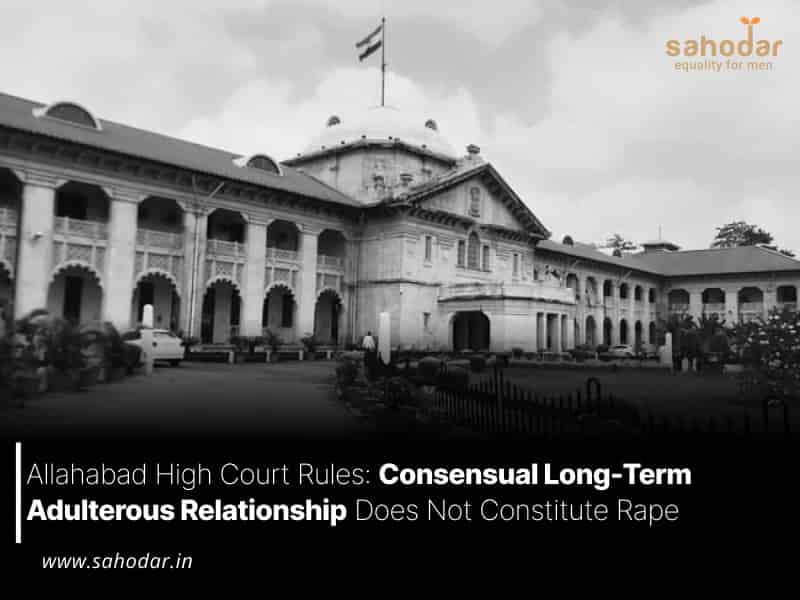The Court observed that a promise of marriage does not automatically render consensual intercourse as rape unless it is proven that such a promise was false from the outset.
The Allahabad High Court recently ruled that a long-term consensual adulterous relationship, with no element of deception from the beginning, does not constitute rape under Section 375 of the Indian Penal Code (IPC) [Shrey Gupta vs. State of U.P. and Another].
Justice Anish Kumar Gupta further clarified that a promise of marriage does not make consensual intercourse rape unless it is shown that the promise was false from the start.
“Each and every promise of marriage would not be considered as a fact of misconception for the purpose of consensual sexual intercourse unless it is established that such promise of marriage was a false promise of marriage on the part of the accused since the beginning of such relationship. Unless it is alleged that from the very beginning of such relationship there was some element of cheating on the part of the accused while making such promise, it would not be treated as a false promise of marriage,” he observed.
As a result, the court dismissed the criminal proceedings against Shrey Gupta, who had been charged with rape based on a complaint filed by a widow. The widow claimed that Gupta engaged in a physical relationship with her under the pretense of marriage following her husband’s death.
She alleged that Gupta repeatedly promised to marry her but later broke that promise and became engaged to another woman. Additionally, she accused him of extortion, asserting that Gupta demanded ₹50 lakh to prevent the release of a video capturing their intimate moments.
In response to her allegations, the trial court took cognizance of offenses under Section 376 (rape) and Section 386 (extortion) of the IPC.
However, the accused approached the High Court under Section 482 of the Code of Criminal Procedure (CrPC), requesting the quashing of the charge sheet and the entire criminal proceedings. He contended that the relationship had been consensual from the start and that the accusations of rape and extortion were unfounded.
The Court examined the facts and noted that the complainant, a widow, and the accused had engaged in a consensual physical relationship for nearly 12-13 years, including during the time her husband was still alive.
The judgment highlighted that the complainant had exerted undue influence over the accused, who was significantly younger and had been employed in her late husband’s business.
“Admittedly, the applicant is much younger in age to the prosecutrix and was an employee in the business of the husband of the prosecutrix. Thus, she was having undue influence over the applicant, whereby she had forced the applicant into physical relations with her,” the Court said.
The Court also considered the legal definition of rape under Section 375 of the IPC, which specifies that for an act to qualify as rape, the woman’s consent must be obtained through coercion, threats, or a misconception of fact.
“Under Section 375 I.P.C., the consent needs the voluntary participation of the prosecutrix in the physical relationship with the accused. The consent of such physical relationship would only be vitiated when it was given under some misconception of fact or under fear of injury to the victim or any person in whom the victim was interested,” the Court said.
The Court also addressed the extortion charges under Section 386 of the IPC.
The complainant had alleged that Gupta threatened to release intimate video clips unless she paid him ₹50 lakh. However, the Court identified inconsistencies in her testimony and the evidence presented.
“The further story is that on 17.01.2018 the applicant had put a country-made pistol on her head and had forcibly raped her and prepared the video clip. From the record, neither the video clip is recovered nor the said country-made pistol has been recovered from possession of the applicant or on the indication of the applicant herein,” court noted.
Citing the Supreme Court’s decision in Naim Ahamed v. State of Haryana, the High Court emphasized that not every breach of a promise to marry should be considered a false promise warranting prosecution for rape under Section 376 IPC.
Consequently, the Court dismissed the criminal proceedings against Shrey Gupta, concluding that the allegations failed to meet the legal criteria for charges of rape or extortion.

